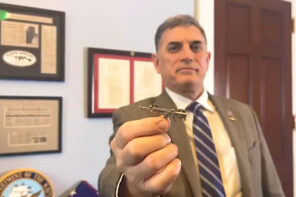The estimable David Leonhardt made a media thing happen over the past few days with his Upshot report on what amounts to a NY Times anal exam of web searches, aided and abetted by the non-evildoers at Google. I was traveling when this mess broke, but it was still in front of me via NPR and lots of digital play.
In case you missed it, the Times found that well-off people (residents of the “easiest places” in the U.S.) make mainly high-end, consumerist web searches. Shiny digital gizmos, especially cameras, garner the special interest of the comfortable, along with various appurtenances related to the thriving of lucky babies. As someone who is neither tech-savvy nor the parent of a fortunate child, I couldn’t recognize many of these searches, apart from sussing out the general categories.
Among the uncomfortable—residents of the “hardest places,” the counties where lots of residents struggle just to keep going—the most frequent web searches trend toward more existential matters (and I use this tag deliberately).
Leonhardt’s/Google’s sketch of the floundering losers in this era of savage inequality, plus the chatter about it, emphasize the importance of lurid religion in the lives of the poor. These wretched Americans, mainly concentrated in the Southeast and the rotted-out portions of the Midwest, do a lot of online searching about God, the Antichrist, Heaven, Hell, the Rapture, and the Bible.
But what Leonhardt and other commentators who are swooning over the soi-disant “apocalyptic” religion of the strugglers fail to mention is that poor peoples’ web searches related to physical distress and disease are even more frequent than those of the heaven/hell sort.
Leave Jesus out of it: the actual primary concerns of the people who are working too hard to spend very much time online have mainly to do with diabetes, blood pressure, diet, and “severe itching.” Finding a used car and learning about Social Security disability benefits also matter to this group. And yes, guns. Compared to searches about these practical matters, searches related to spiritual things come in a poor second.
So what do we have here, at bottom? Sociologically, is it really a surprise that hard-pressed people facing multiple health issues are searching for information related to their physical conditions? Also sociologically, is it a surprise that these same people are also interested in the more dramatic relief and comfort offered by the kind of religion that supreme storyteller Flannery O’Connor treated with more reverence than ridicule some decades ago?
Put another way, is it still really news that hardscrabble folks still dream about pie in the sky, by and by? Or, conversely, that the experience of everyday humiliation and oppression might reinforce the belief that God will make things right in the end, or that Satan is real and that an actual Hell awaits those who slip from the righteous path—and/or those who put stones of stumbling in the path?
Sociological attention to the role of economic deprivation in religious life goes back at least as far as Marx’s critique of Hegel.
I want to be fair to Leonhardt and even to the Google people who popped out the “news” about the religious searches. They aren’t intending to make value judgments; they are merely offering data-related observations, and they also clearly deplore the widening inequality that increasingly makes for two Americas.
But can we allow here that mere raw data aren’t enough? Some context on the real lives of the 21st-century Joads would be a lot more illuminating than raised eyebrows about the scary religious beliefs of the struggling.
Those who inhale the Leonhardt dispatch without said context might even suppose that “primitive” religion functions as a predictor of economic failure. Would they say that about the second-generation Puritans, still the possessors of the darkest possible religion but not exactly slackers in the accumulation department? Would they say it about the Latino Pentecostal strivers of the current era? Lower economic status might well be linked to a deep interest in disruptive religion. But an investment in hard-core religion only correlates to lower economic status until it doesn’t.
And as for the apparent lack of religious curiosity in the searches of the well-off, that too should not come as a surprise. If the comfortable have spiritual questions or spiritual anxieties, they won’t be turning to the Internet for answers. Besides, in the words of Mark Twain, these folks mainly have “the calm confidence of the Christian holding four aces.”




